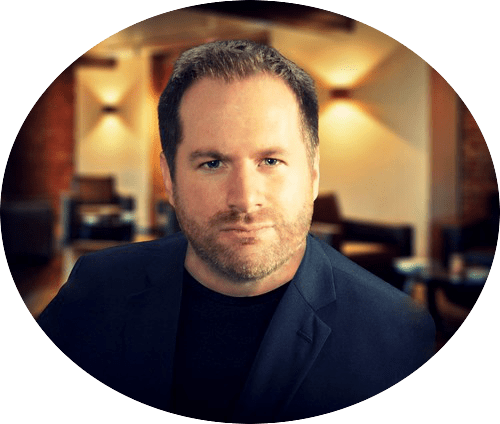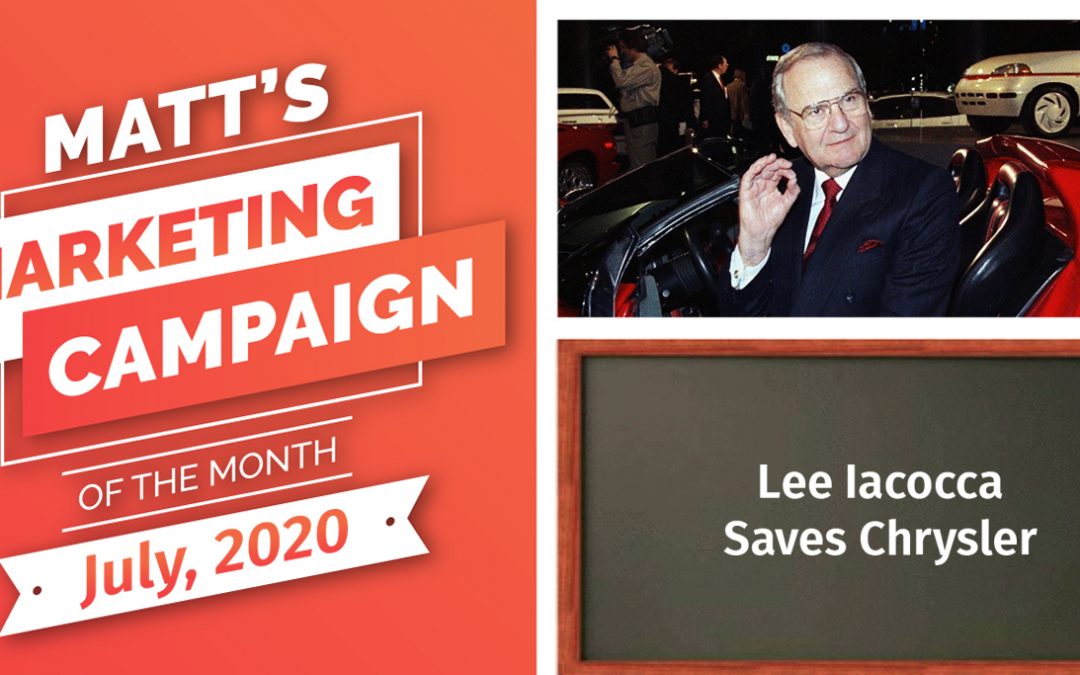[sb name="mmcm-top"]
Following recalls of the Dodge Aspen and Plymouth Volare, Chrysler was in shambles in the late 1970s. This caused them to woo Lee Iacocca who had made a name for himself in the automobile industry during his successful tenure as President at the Ford Motor Company.
Ever hear the of the Ford Mustang? That was his idea.
Iacocca wasn't being disloyal to Ford by joining Chrysler. In fact, Iacocca was fired from Ford in 1978 due to clashes with sniveling brat, Henry Ford II, despite record-setting years of profit.
Iacocca went right to work at Chrysler by re-structuring teams that develop cars and the marketing to save on waste and minimize costly spending. Essentially he jumbled all the individuals responsible for each body type of car to streamline communications between all of them. They are called: Platform Teams.
Before Iacocca, coordination between departments was like putting together a puzzle without colors.
The best part of these Platform Teams is the customer has the loudest voice as market research combined with research and development became the most important motivations behind Chrysler's new vehicles.
I know -- this sounds like common sense. However, every company, adult, car and stream eventually collects wasteful habits and damaging elements that must be removed. So, let's not judge too harshly here.
Now manufacturers could speak directly to engineers, and engineers could speak directly to marketers who could also speak directly to finance officers who can also speak to parts and service, and so on and so forth. Again, this was a huge development in the auto industry!
To improve customer-focused vehicle development that minimized cost and maximized profit, Chrysler focused on the "5 Whys" to solve problems.
The department heads would address problem by asking "why" each time a problem was identified, and after doing this several time (I suppose about 5), the solution would present itself.
The next big development came from the fact that the people on the floor assembling the cars could now take part in regular meetings, and give direct input to Platform heads. This was a huge change in thinking as the old "assembly line" method that dominated early automotive development didn't encourage or even allow assembly people to give feedback. As a result, major flaws went unnoticed which led to huge recalls as we addressed above with the Dodge Aspen and Plymouth Volare.
Iacocca re-introduced the big Imperial as the company's new flagship car. He then petitioned the Federal Government for a bailout, which led to President Jimmy Carter signing the Chrysler Corporation Loan Guarantee Act of 1979, in 1980 The bill provided $1.5 billion in loan guarantees.
Next, Iacocca began personally began appearing in ads with the new slogan, "The pride is back."
As the graph above show, Iacocca brought Chrysler back from the dead and kept improving vehicle sales until he finally retired in 1992. This was clearly due to a steady decrease in profit which is almost inevitable after such steady increases.
Before Iaccoca's presence in 1970, Chrysler posted its worst net loss of over $150 mil in one quarter. In the first quarter of 1983, Chrysler posted a $170 million profit, the largest quarterly profit in the company’s history.
Among his most successful acts at Chrysler was making himself the face of the brand.
He would take out full-page ads in local papers that were open letters to the open public that would debunk the “myth” of Chrysler’s “gas guzzlers” and clarify Chrysler’s situation as coming back.
Then came his sales-driven commercials which utilized Iaccoca's salesmanship skills with slogans such as: “If you can find a better car, buy it."
His natural charisma and trust-invoking presence helped tremendously to save Chrysler, and rive its best years of record setting profits, at that time.
[sb name="newsletter"]
More Marketing Campaigns of the Month
What Happens in Vegas Stays in Vegas
[sb name="mmcm-top"] In 2003, R&R Partners (R&R for the sake of simplicity) created the most successful slogan ever created in modern history: "What happens in Vegas stays in Vegas." The slogan has been quoted more than any other slogan, and has been used in...
Southwest Airlines Promote Winglets
[sb name="top-banner"] [sb name="mmcm-top"] It all started with people getting bigger, and bigger and bigger, and now jet fuel costs for the airline industry has reached critical mass (much like the weight of many Americans). To reduce this cost, the ingenious...
Get My Free Updates
Maverick was listed by Forbes as the #1 Consultant Who Avoids the B.S."

